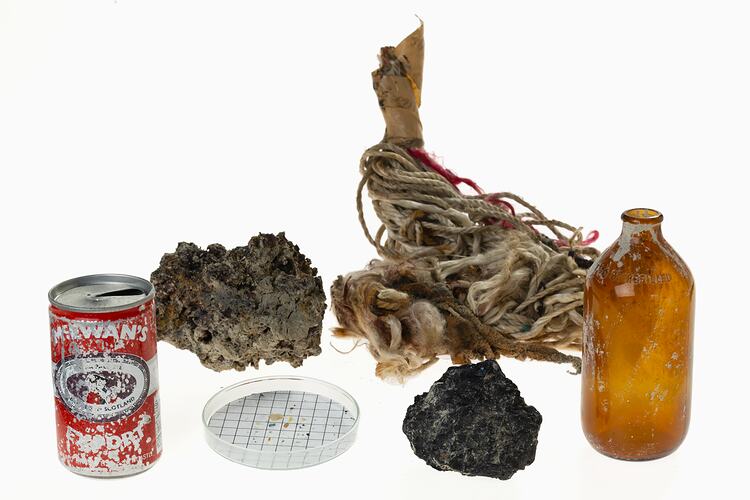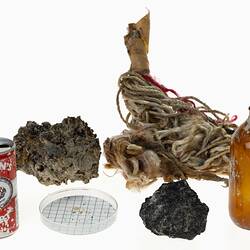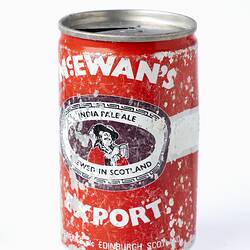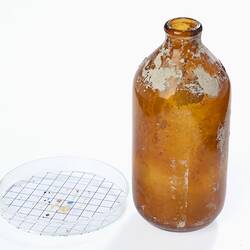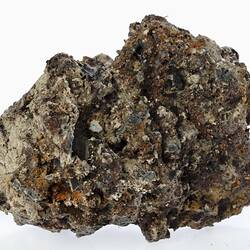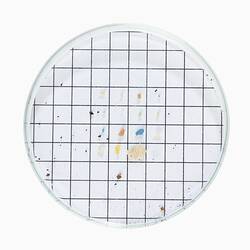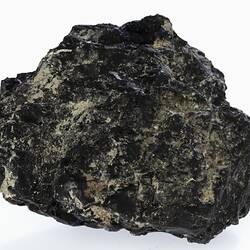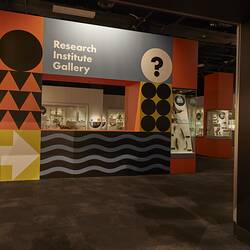Unfortunately, along with amazing animals, our research samples include a variety of rubbish. Even this remote deep-sea environment suffers the impacts of human activities. This is a small selection of what has been found, from tin cans to beer bottles, and even discarded coal and clinker (the residue of burnt coal) from steamship days. Our scientists also look for microplastics - pieces of plastic debris less than 5 mm in length.
Recent reports show 700 different marine species are impacted by the estimated 6 -12 million metric tonnes of plastic that enter our oceans each year. For animals like turtles and seabirds, waste like shopping bags and microplastics can look or smell like food; a mistake which can prove fatal.
Rubbish collected from these voyages provides useful information on what items are getting into the marine ecosystems. The research helps to monitor and reduce this human impact in the future. Right now, scientists from CSIRO and around the world are collaborating on a global waste-to-ocean project to assess how much plastic enters our ocean.
More Information
-
Keywords
-
Authors
-
Article types
